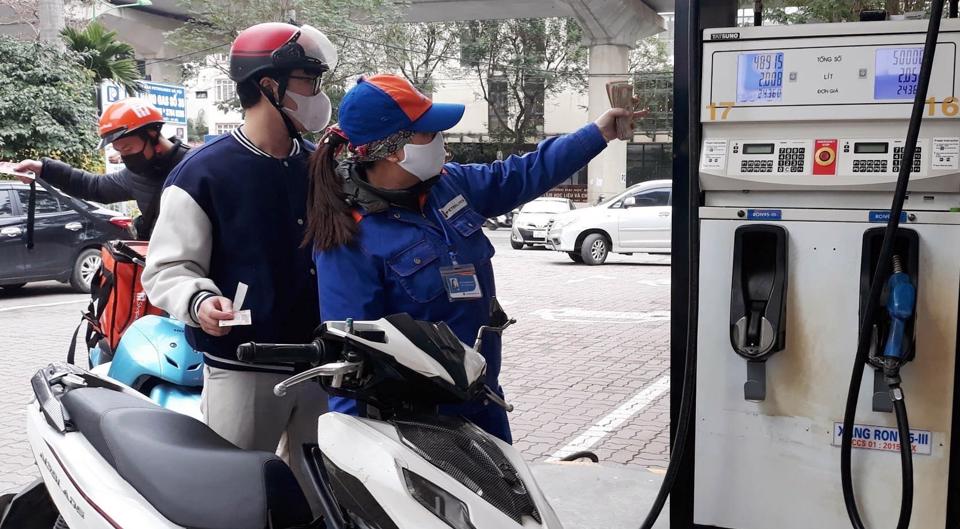PM hints at lower tax rates for petroleum products
A lower domestic tax rate for petrol products, especially the environmental protection tax, should be considered to prevent the prices in the domestic market from rising.
Prime Minister Pham Minh Chinh urged Government agencies to study the possibility of lowering environmental protection tax for petroleum products.
| Locals buying fuel at a petrol station in Cau Giay District. Photo: Le Nam |
Under the directive, the Ministry of Finance (MoF) and the Ministry of Industry and Trade (MoIT) are tasked with submitting a plan to the prime minister before February 28.
Environmental tax for biofuel RON95, E5-RON92, and diesel is collected on a lump-sum basis with a fixed amount of VND4,000, VND3,800, and VND2,000 per liter respectively.
In addition to this tax, each liter of fuel is also subject to different kinds of taxes, including the excise tax at 10% for RON95, and 8% for E5-RON92; import duty of 8%; value-added tax of 10%; and a contribution of VND300-1,250 per liter to the petrol price stabilization fund.
It is estimated that for each liter of fuel, taxes, and fees make up 42-43% of the retail prices; and diesel accounts for 21-27%.
Experts suggested at a time of the depleted petrol price stabilization fund and rising crude oil prices in the international markets, lower domestic tax rates for petrol products, especially the environmental protection tax, should be considered to prevent the prices in the domestic market from rising.
The current law stipulates the adjustment of such a tax is the competence of the Standing Committee of the National Assembly.
Prime Minister Chinh also instructed the MoIT to ensure the balance of the supply and demand in the petrol market, avoiding shortage.
Chinh said given petroleum products as strategic goods with significant impacts on socio-economic activities, the management of such products should be in strict compliance with the regulations.
Over the past few days, the prices of fuels in the global market continue rising, while the shortage of fuel supplies domestically remains a major issue. This was due to the Nghi Son oil refinery plant, which supplies 34% of the total fuels and petrol products in 2021, scaled-down operation since mid-January due to financial difficulties.












